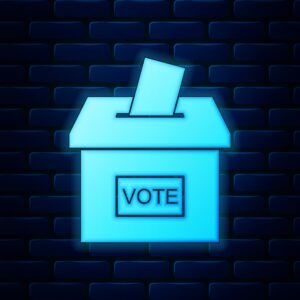
Last week, the Minnesota Supreme Court opted not to restore voting rights for felons on probation. In the majority decision, the group wrote that while certain state laws may disproportionately harm people of color, stripping felons of voting rights is not unconstitutional.
The decision stems from a 2019 lawsuit that takes issue with the wording of the current law. As it stands, felons cannot vote until they’ve been “discharged,” which is currently interpreted to mean that the individual has completed their jail time and any additional probation or supervised release. Plaintiffs argued that felons should have their voting rights restored upon discharge from prison alone.
Justices Confirm Voting Law
Six justices made up the majority decision, and they wrote that their was no evidence that the original law was intended to restore voting rights immediately upon release from prison. A majority of justices also rejected the argument that because Native American and Blacks disproportionately lose their right to vote due to felony convictions, the law violates the state constitution’s equal protection clause.
Associate Justice Natalie Hudson wrote in her dissent that the statute does in fact violate the equal protection clause.
“[The law] acts as a gatekeeper to the franchise, determining who will have a voice in the democratic process and who will continue to be relegated to political marginalization. … Sanctioning such discrimination is particularly perverse in the voting rights context because it inhibits the ability of the politically powerless to redress discrimination through ordinary political means, further marginalizing those seeking to reenter society.”
The Minnesota Supreme Court also noted that if legislators are keen to make the change, they should do so, and it seems likely that it will happen. A bill has already been passed by the Democrat-controlled House, and now it’s on the way to the Democrat-controlled Senate. The ruling by the Minnesota Supreme Court would not affect the pending legislation.
Associate Justice Paul Thissen concluded his majority decision by saying that lawmakers have the power to make the change if they disagree with the court’s ruling
“[Although the statute] passes constitutional muster, we recognize the troubling consequences, including the disparate racial impacts, flowing from the disenfranchisement of persons convicted of a felony. The Legislature retains the power to respond to those consequences.”
For what it’s worth, 15 other states have voting laws similar to Minnesota’s current system, while 21 states restore voting rights upon release from incarceration.
If you have been charged with a felony and would like to keep your freedom and your right to vote, you need to challenge the charges in court, and the best way to do that is with an attorney by your side. For help with your defense, reach out to Avery and the team at Appelman Law Firm today at (952) 224-2277.





